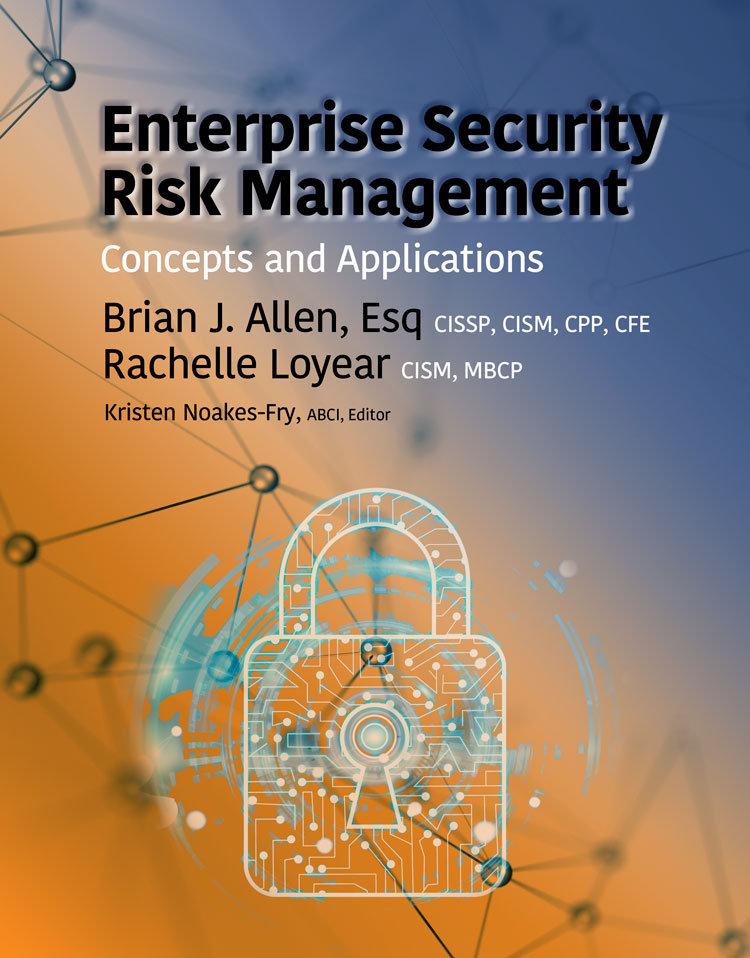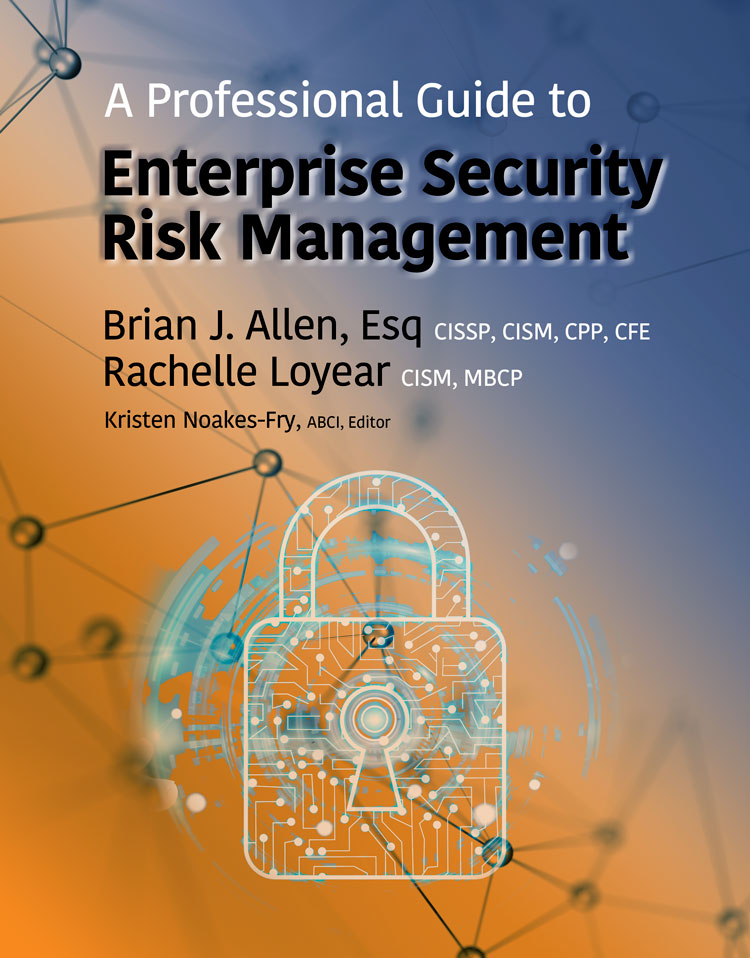As a security professional, have you found that you and others in your company do not always define “security” the same way? Perhaps security interests and business interests have become misaligned. Brian Allen and Rachelle Loyear offer a new approach:
Enterprise Security Risk Management (ESRM). By viewing security through a risk management lens, ESRM can help make you and your security program successful.
In their long-awaited book, based on years of practical experience and research, Brian Allen and Rachelle Loyear show you step-by-step how
Enterprise Security Risk Management (ESRM) applies fundamental risk principles to manage all security risks. Whether the risks are informational, cyber, physical security, asset management, or business continuity, all are included in the holistic, all-encompassing ESRM approach which will move you from task-based to risk-based security.



